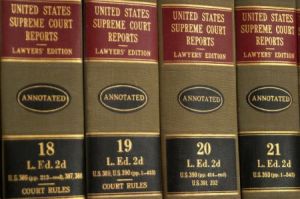Court opinions and records are in the public domain, and therefore open to the public, of course. But not for free – just try to secure a case from PACER. UC Berkeley School of Information assistant professor Brian Carver and UC Berkeley alumnus Michael Lissner have taken the law into their own hands, so to speak, and have formed a non-profit organization called the Free Law Project with the goal of providing free and easy to access legal content for download. As can be seen from their About page, the idea is:
- to provide free, public, and permanent access to primary legal materials on the Internet for educational, charitable, and scientific purposes to the benefit of the general public and the public interest;
- to develop, implement, and provide public access to technologies useful for legal research;
- to create an open ecosystem for legal research and materials;
- to support academic research on related technologies, corpora, and legal systems; and
- to carry on other charitable activities associated with these purposes, including, but not limited to, publications, meetings, conferences, trainings, educational seminars, and the issuance of grants and other financial support to educational institutions, foundations, and other organizations exclusively for educational, charitable, and scientific purposes as allowed by law.
The end result will look much like other research tools, in that it will offer access to current and historical state and federal court decisions via search interface, with alerts, advanced search and citator services. Another cool thing, they will use open licenses for their software – Juriscraper and CourtListener. Because they are open, anyone can take the software and make it do more, better, faster, more awesomer things. For instance, the ultra-interesting Ravel Law has used the Free Law Project databases to shore up its own content.
It has always rubbed me the wrong way that court documents and judicial opinions are supposed to be open, public documents but that you can’t get them without paying a gatekeeper. This runs completely counter to how the Internet does and should work, IMHO. This principle is what activist Aaron Swartz gave his life to promote. Making money off of access to the law reminds me of paying for bottled water. Why? We already pay for the systems that generate the resource.
Kudos to Carver and Lissner for doing their part to break down those walled gardens.

Pingback: Free Law Project Is Now Even Bigger, Ergo Better | Advocate's Studio